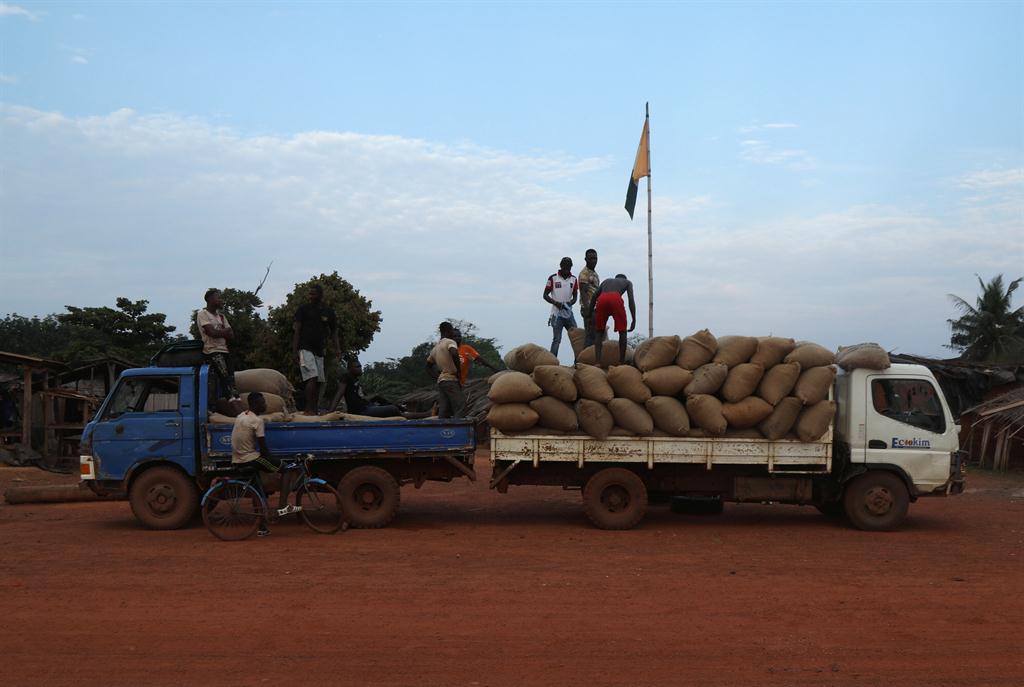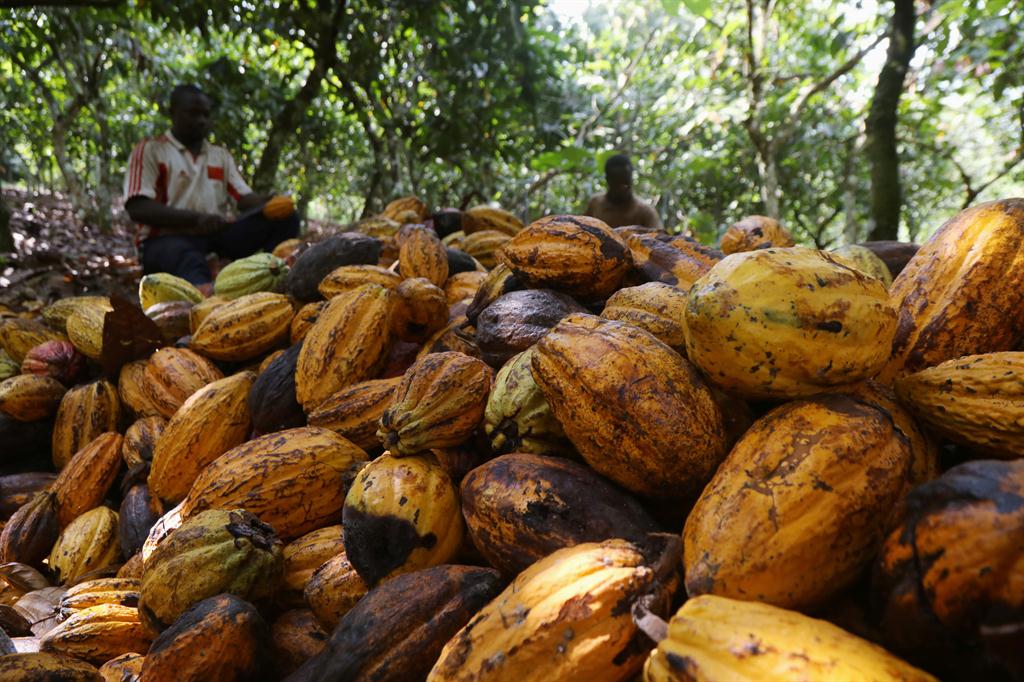Ivory Coast rains support abundant cocoa mid-crop
Data collected by Reuters showed rainfall in Abengourou, was 11.8 at millimetres (mm) last week, 8.8 mm above the five-year average.
Above average light rains mixed with spells of sunshine last week in most of Ivory Coast's cocoa regions provided the right growing conditions for the April-to-September mid-crop, farmers said on Monday.
Ivory Coast, the world's top cocoa producer, is currently in the dry season, which runs from mid-November to March, when rainfall levels are often poor.
Farmers said growing conditions have been good since December compared with last year. They added that an abundant cocoa harvest is expected in the first three months of the mid-crop if the weather was not too dry, and too hot in February.
They added that the ongoing October-to March main crop was tailing off but enough pods were on trees to ensure a significant harvest until early March.
However, farmers were struggling to sell their beans even well below the guaranteed farmgate price of 1 000 CFA franc (US$1.81) per kg, due to a slump in global demand because of the coronavirus pandemic.
In the eastern region of Abengourou, farmers said cocoa trees had plenty small pods for the mid-crop.
But there were concerns over the proper storage of already harvested but unsold beans in the bush.
Quality control
"We are going to have quality control issues because we don't have the means to properly dry and stock beans in the farm warehouses," said Julien Amoakon.
Data collected by Reuters showed rainfall in Abengourou, was 11.8 at millimetres (mm) last week, 8.8 mm above the five-year average.
In the central regions of Bongouanou and Yamoussoukro, and in the western region of Soubre, where rainfall was above average, farmers forecast a good start to the mid-crop.
Although rainfall was below the average in the centre-western region of Daloa, which produces around a quarter of national output, farmers said growing conditions were adequate thanks to a good soil moisture.
But there also, farmers are struggling to sell their beans even at a steep discount to the guaranteed farmgate price.
"Some farmers have offered beans at 800 CFA francs per kg but there are no takers," said Albert N'Zue, who farms near Daloa, where 1.2 mm fell last week, 0.6 mm below the average. - Nampa/AFP
Ivory Coast, the world's top cocoa producer, is currently in the dry season, which runs from mid-November to March, when rainfall levels are often poor.
Farmers said growing conditions have been good since December compared with last year. They added that an abundant cocoa harvest is expected in the first three months of the mid-crop if the weather was not too dry, and too hot in February.
They added that the ongoing October-to March main crop was tailing off but enough pods were on trees to ensure a significant harvest until early March.
However, farmers were struggling to sell their beans even well below the guaranteed farmgate price of 1 000 CFA franc (US$1.81) per kg, due to a slump in global demand because of the coronavirus pandemic.
In the eastern region of Abengourou, farmers said cocoa trees had plenty small pods for the mid-crop.
But there were concerns over the proper storage of already harvested but unsold beans in the bush.
Quality control
"We are going to have quality control issues because we don't have the means to properly dry and stock beans in the farm warehouses," said Julien Amoakon.
Data collected by Reuters showed rainfall in Abengourou, was 11.8 at millimetres (mm) last week, 8.8 mm above the five-year average.
In the central regions of Bongouanou and Yamoussoukro, and in the western region of Soubre, where rainfall was above average, farmers forecast a good start to the mid-crop.
Although rainfall was below the average in the centre-western region of Daloa, which produces around a quarter of national output, farmers said growing conditions were adequate thanks to a good soil moisture.
But there also, farmers are struggling to sell their beans even at a steep discount to the guaranteed farmgate price.
"Some farmers have offered beans at 800 CFA francs per kg but there are no takers," said Albert N'Zue, who farms near Daloa, where 1.2 mm fell last week, 0.6 mm below the average. - Nampa/AFP





Comments
Namibian Sun
No comments have been left on this article